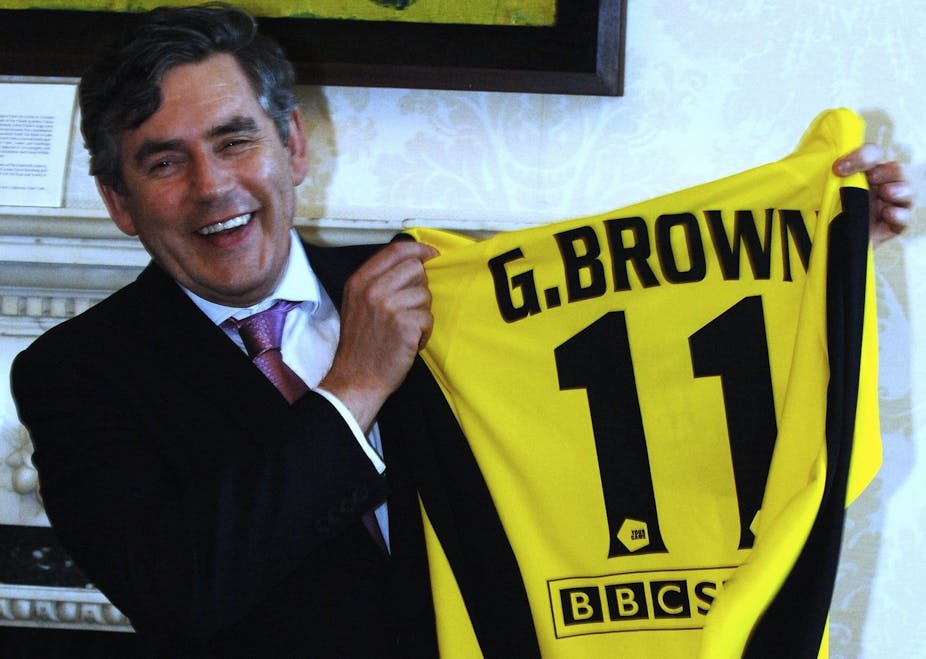In the Scottish independence referendum, the no campaign remains in the lead but the gap is narrowing. According to the commentators, the energy, drive and momentum seems to be with the yes campaigners.
Time to wheel out your top striker: the experienced, tough and tenacious Gordon Brown. Scotland’s super-sub? The recent announcement that he is being lined up to put Better Together in front would certainly suggest so.
Admittedly he had a tendency to bite back at his opponents, especially if they wore a Blairite strip, and he remains discredited and despised south of the border. But unpopularity amongst the English is enough to commend him to his fellow Scots. For Scotland, Brown is less the embittered and discredited bruiser sulking in his Fife lair and more the brave and gallant warrior scorned by the Sassenachs.
So far the former prime minister has kept a low profile. He made a couple of widely reported speeches for the inauguration of the United with Labour campaign for a no vote but then all went quiet.
Nerves running high
At least part of the reason for Brown’s reticence in the campaign appears to have been his differences with Better Together frontman Alistair Darling – the two fell out spectacularly when they were prime minister and chancellor.
More recently there have been reports that the rift has been healed. All the same, there were reports over the weekend that Brown’s surfacing coincides with moves within the campaign to sideline Darling. Whatever the case, it is a mark of the unease of the anti-independence camp that there are now plans for him to appear on platforms for United with Labour and Better Together as the campaign intensifies.
This not only reflects Brown’s high standing in his Scottish bailiwick but the belief in the no camp that economic issues – the former chancellor’s special area of expertise – will prove decisive. He has already warned about the threat to pensions. And since anxieties about the currency and other economic issues persist, Brown’s pronouncements can be expected to carry weight.
But there is a key strategic decision to be made. The Independent recently quoted one Labour source as stating, “The problem has been getting the three pro-union parties working together.” For others the problem has been precisely the opposite – Labour’s alliance with the two other parties, both of whom are highly unpopular in Scotland, has been grist to the nationalist mill.
Has Better Together been better together?
First minister Alex Salmond and his allies’ chief strategy has been to portray the decision as a straight one between “them”, the Tory-dominated London-based coalition, and “us”, the progressive-minded Scots. By working closely with the Conservatives and Lib Dems, Labour allowed itself to be tarnished by association, playing into the Nats’ hands. On this rationale, forming Better Together was a major strategic error.
It still looks likely that Scotland will vote no. Another yes strategy is to hope that Labour loses its slender lead in the Westminster opinion polls. If that happens, the battle cry will be: vote yes or get four years of Tory government.
It is also worth noting whose votes will determine the outcome. At the moment a large proportion of the Scottish electorate remain undecided. Many of them are working class voters living in the former Labour heartlands of the west central belt: the type of voters that New Labour routinely neglected in its pursuit of middle England.
Labour’s hope is that it can revive old class and partisan loyalties for the unionist cause. Gordon Brown, a politician never to be underestimated, may be just the man to do this.

